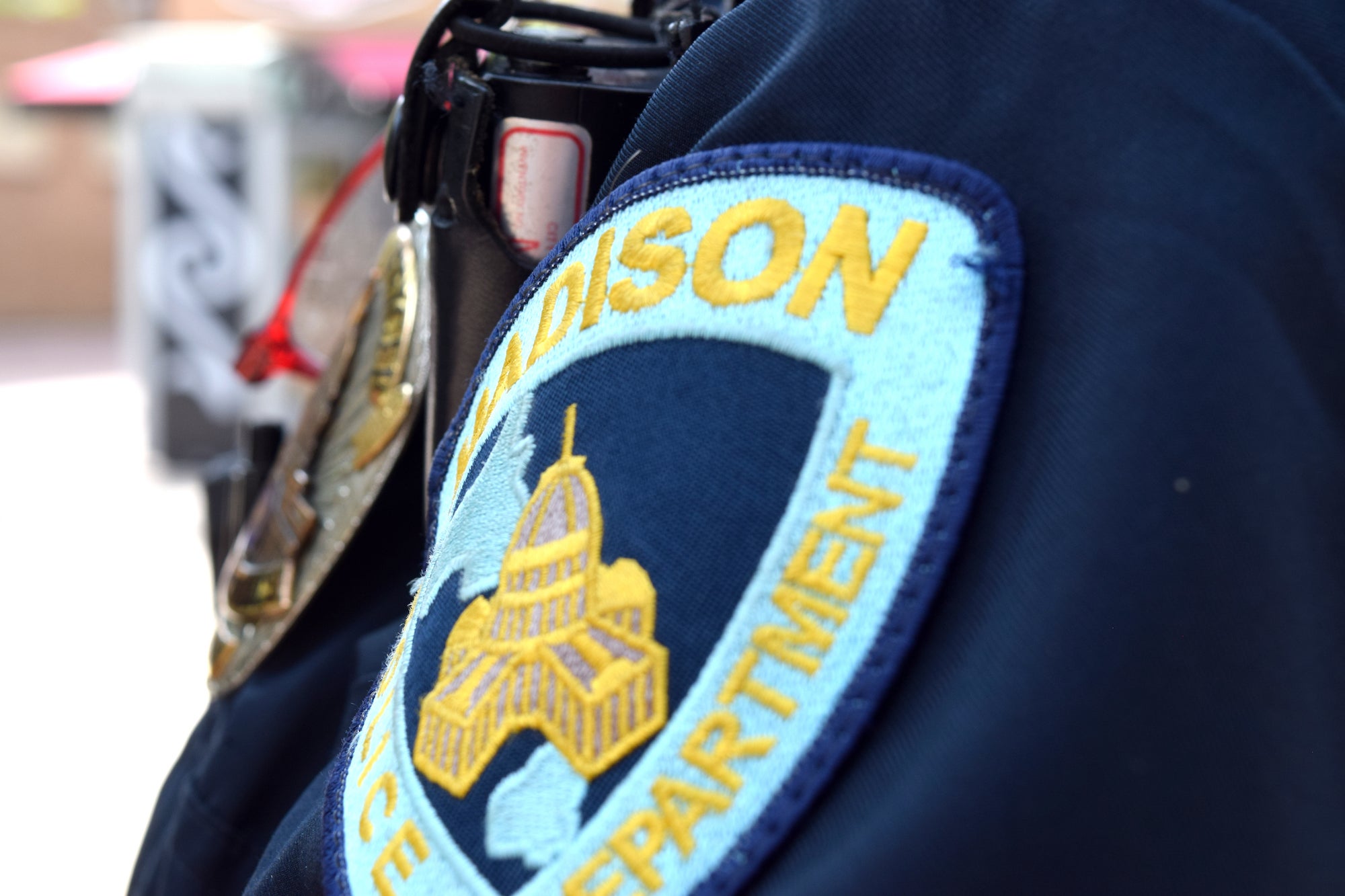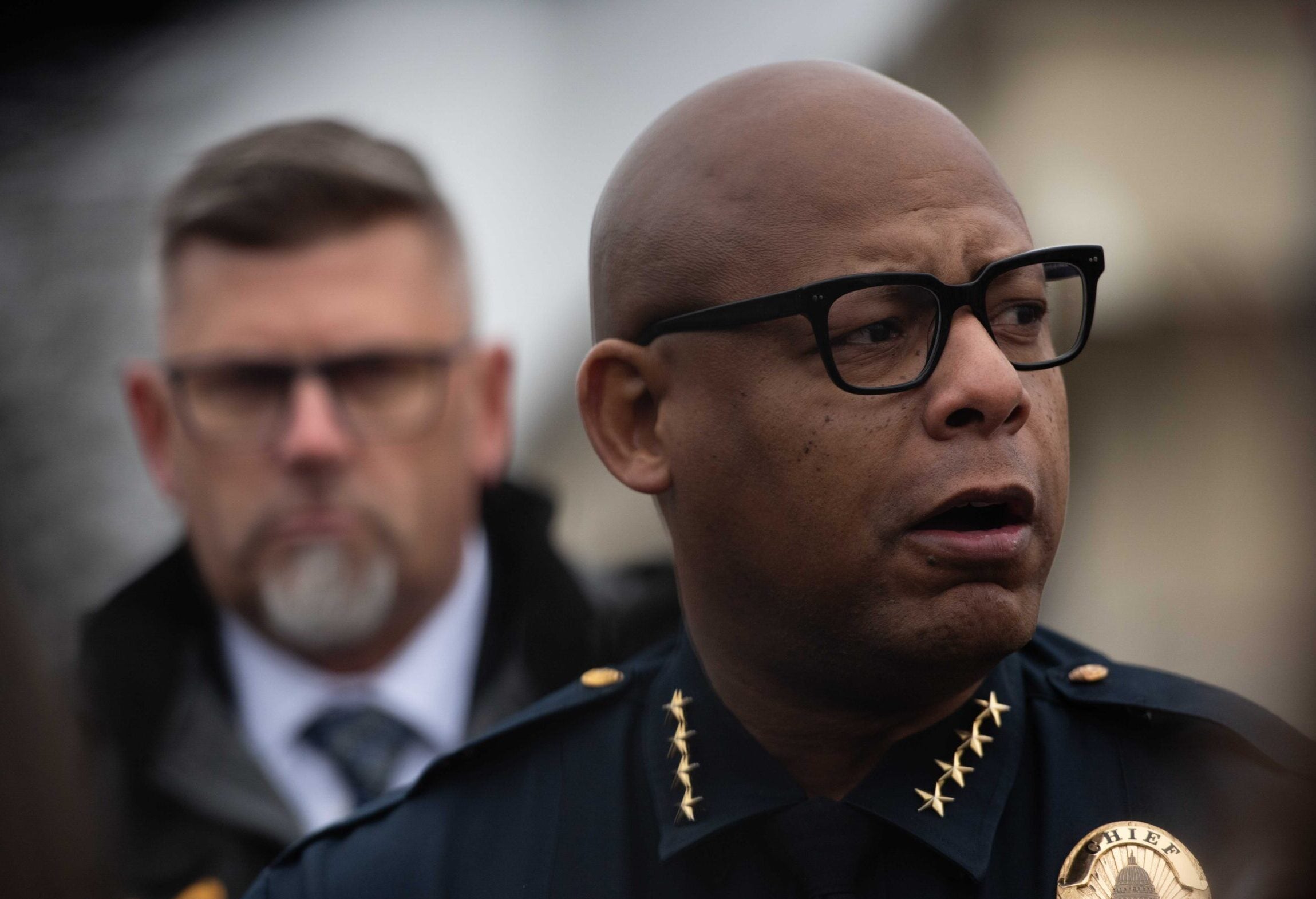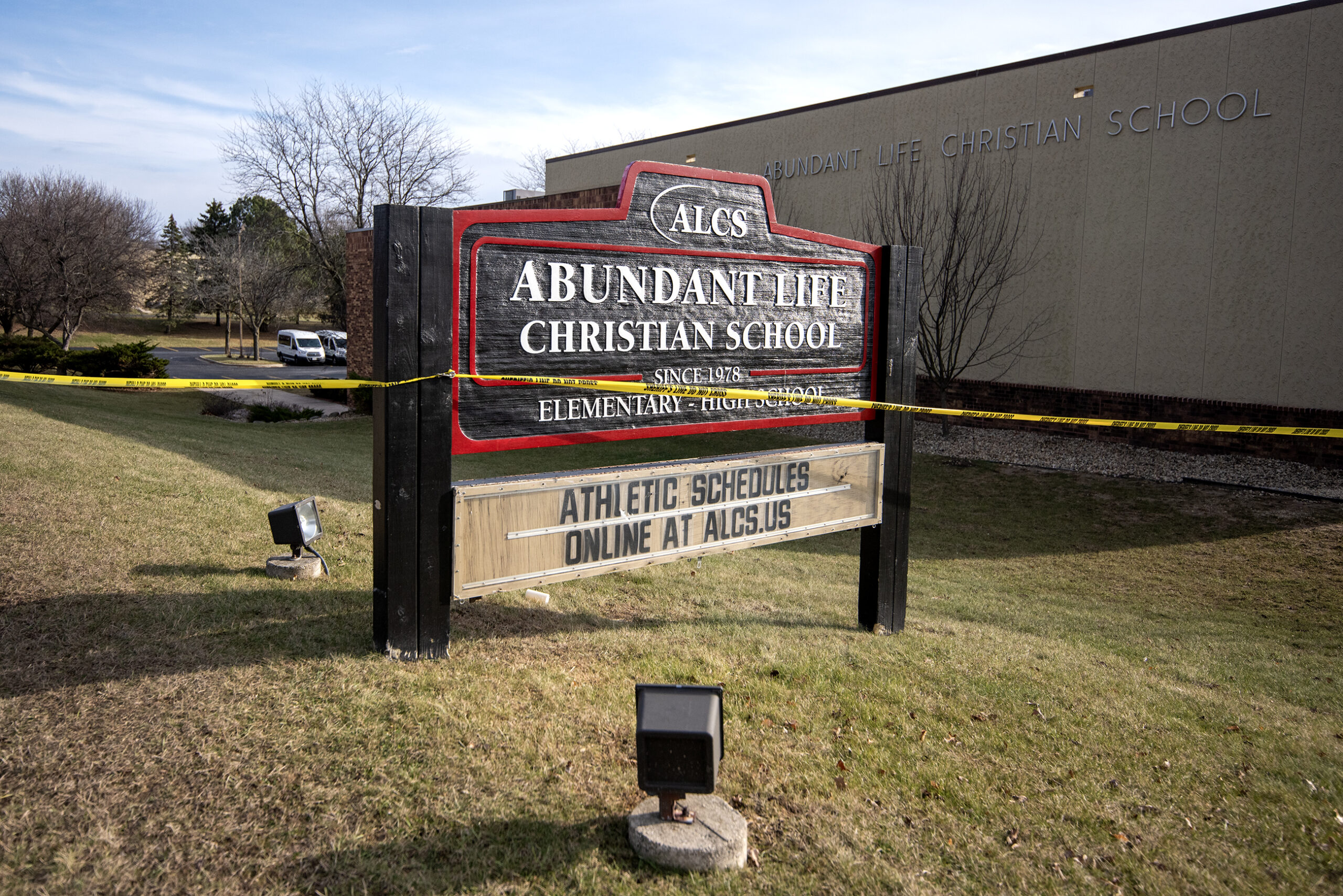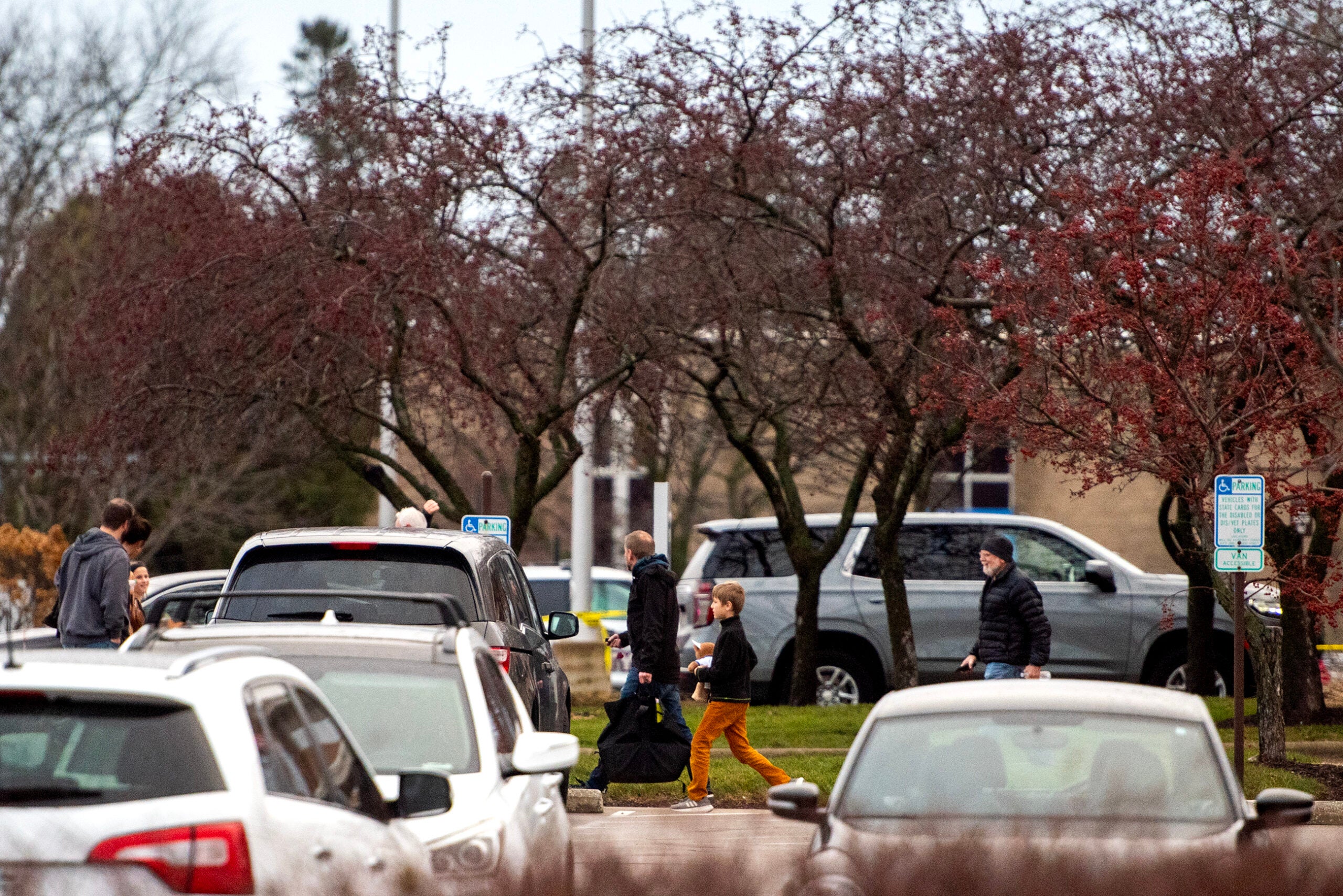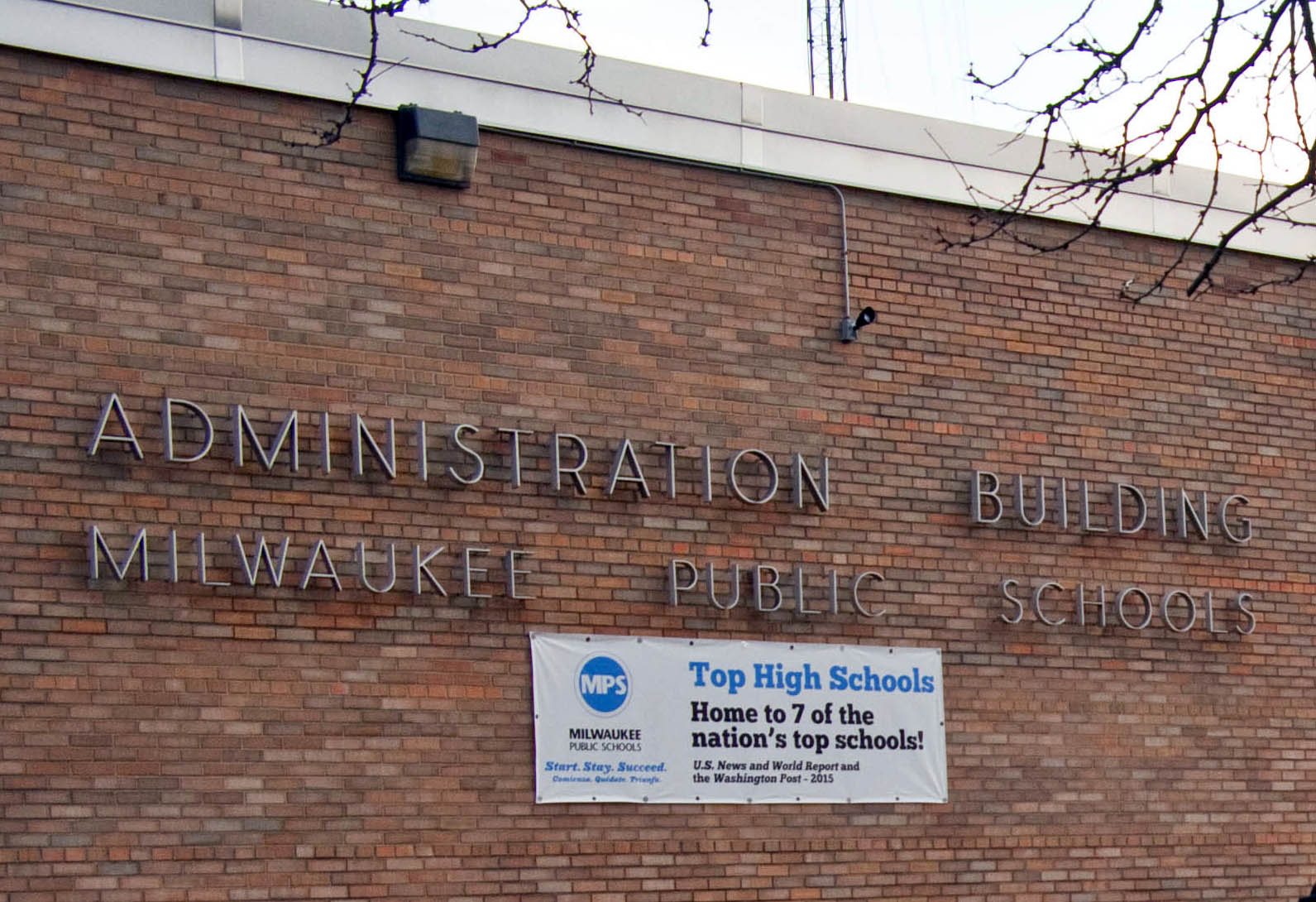The Madison Police Department has received a federal grant totaling $250,000 for improving safety throughout the Madison Metropolitan School District. The quarter-of-a-million dollars will go toward establishing a coordinated, restorative response before, during and after incidents of violence, according to officials. Madison City Council members must sign off on the grant before the funds get put to use.
“We’re trying to be more consistent and more predictable, not only with school staff, but with police as to how we approach certain behaviors that might pose a serious threat to other students or within the schools themselves,” explained MPD Capt. John Patterson.
The announcement follows two shooting incidents near La Follette High School and community meetings about how to reduce school violence.
Stay informed on the latest news
Sign up for WPR’s email newsletter.
Some of the funds will support a district project coordinator who will develop and lead training on new safety protocols, such as mental health care and event response. The coordinator is a three-year appointment.
“School safety is every district’s top priority, and it relies on our proactive systems and protocols, as well as the strength of our school communities,” said MMSD School Safety and Security Coordinator Joe Balles in a statement. “Through this grant, we’ll be able to do more critical work on building relationships and strong school climates.”
Patterson said the Police Department plans to focus on standardizing responses and promoting a restorative justice model. This encourages alternative outcomes for rule-breaking or violence, instead of the punishments that typically result from police involvement, such as citations or arrests. The model often includes incorporating input and help from community and family members as well.
Patterson said he hopes that continuing to prioritize restorative justice will reduce racial disparities in school punishment and the criminal justice system.
“I think the main thing that we’ve seen in the past is that despite our best efforts, the biggest gap that we see right now from school to school is just the consistency and coordination and implementation of our restorative justice,” said Patterson.
The restorative justice model typically applies to cases of more common schoolyard violence such as fistfights — not mass shootings. The source of this federal grant, however, is a program that’s part of the STOP School Violence Act of 2018, drafted in response to the deadly shooting at Marjory Stoneman Douglas High School in Parkland, Florida.
At first glance, flying fists and flying bullets might seem like disparate concerns, but Patterson said addressing both are critical components of overall school safety.
“There are episodes of students acting out, experiencing crises daily throughout our schools that don’t necessarily rise to the level of any sort of attention, and it’s how we handle these which will potentially prevent or deter, we think, one of these tragedies from occurring,” he said. The grant, then, is “really trying to get that behavior and better educating us all who are involved in our schools, not only to recognize the behavior but to try to address it in a way that is going to involve resources, the community, and the school to try to bring the student to a different place in a more restorative way.”
The grant will additionally provide facility upgrades such as phone systems, cameras and locks and retrain staff on emergency protocols.
Wisconsin Public Radio, © Copyright 2025, Board of Regents of the University of Wisconsin System and Wisconsin Educational Communications Board.

